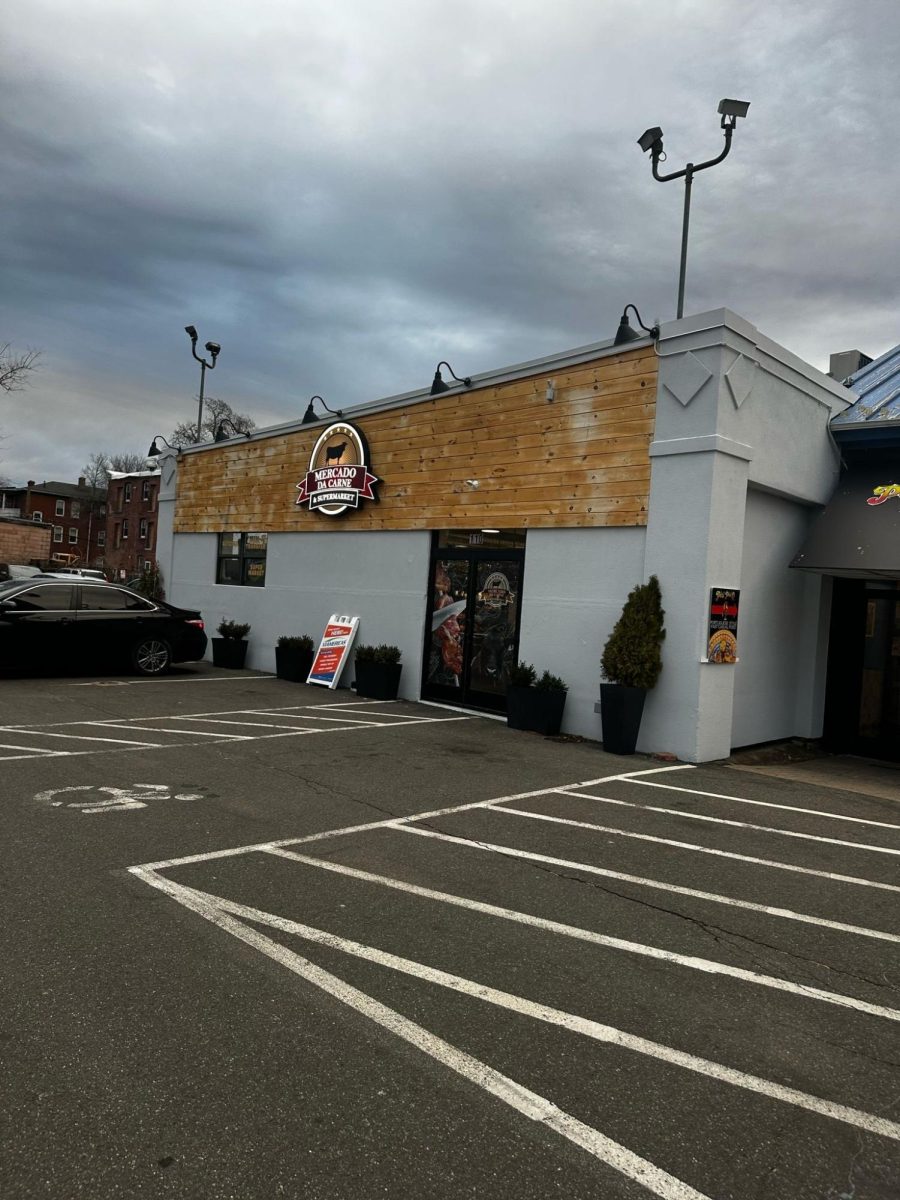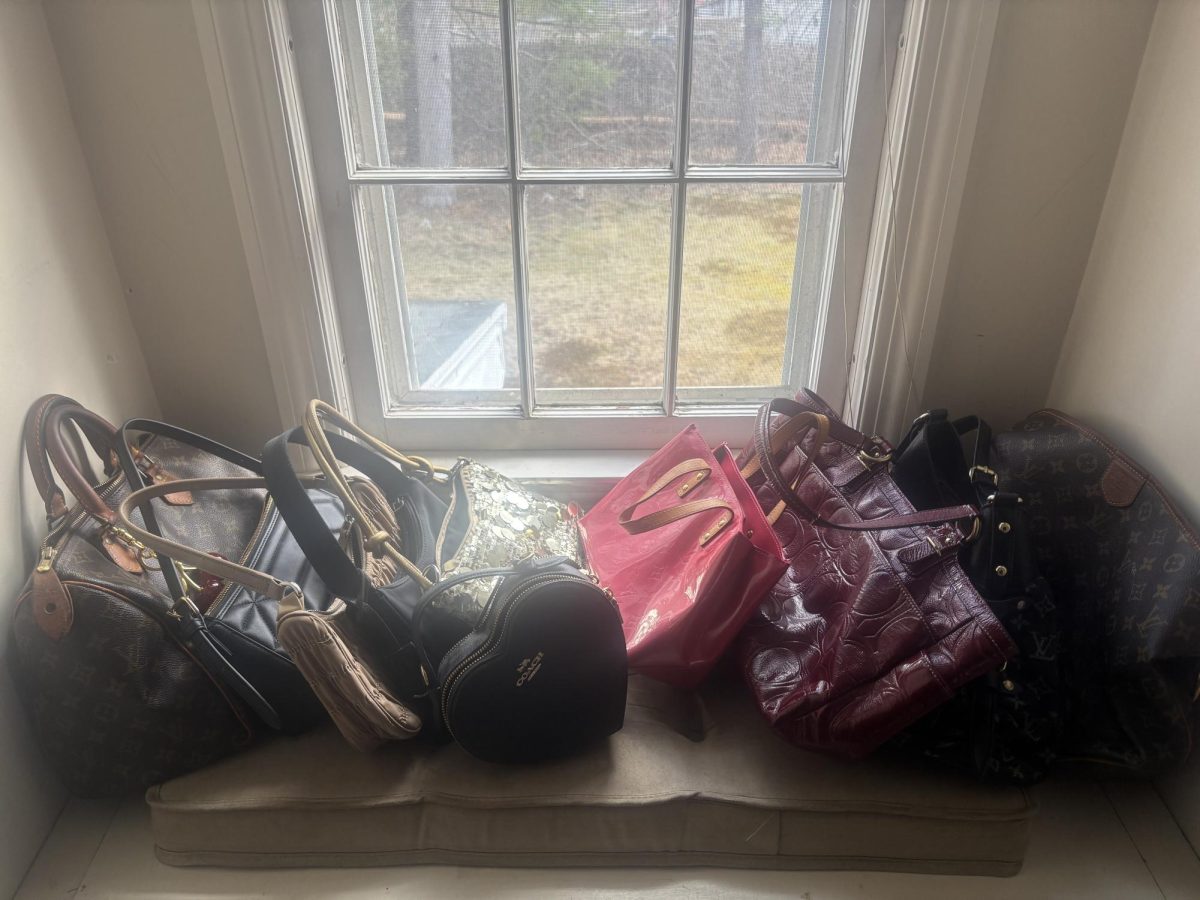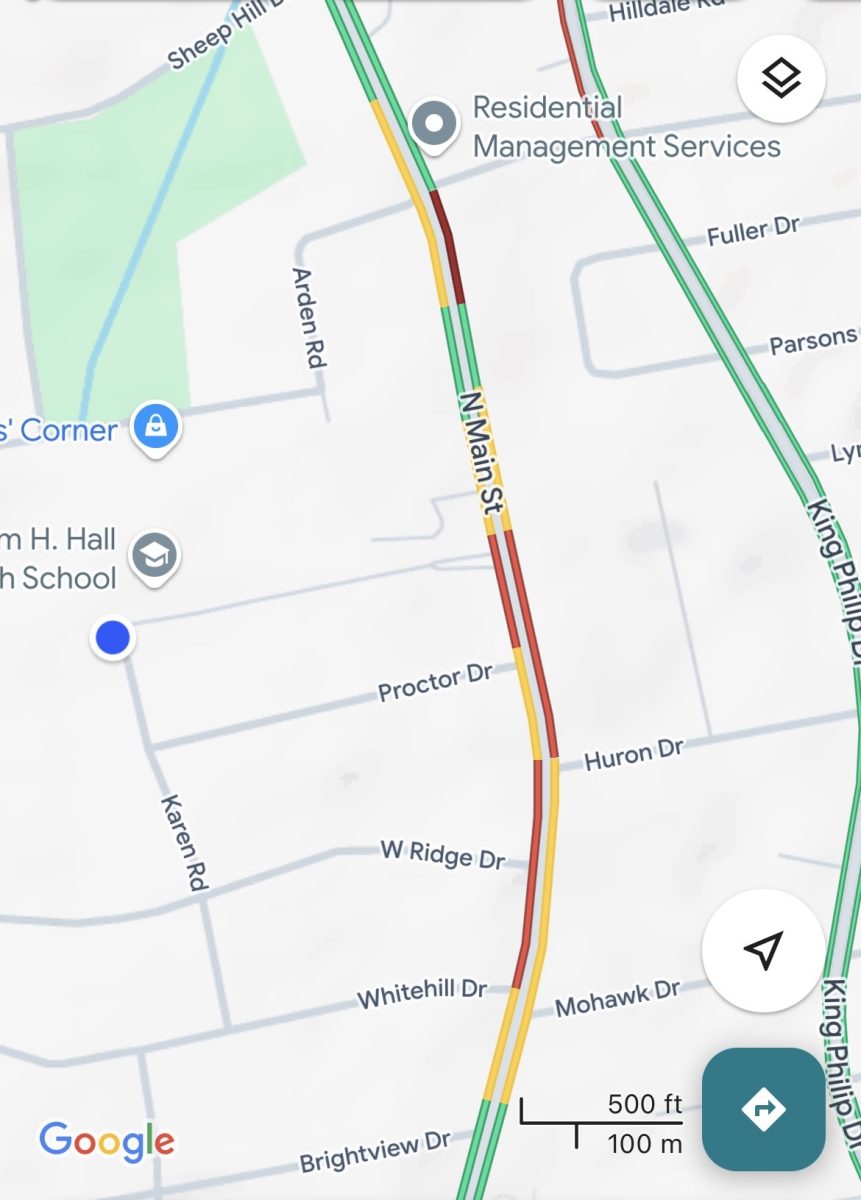Caleb Salomons (Interviewer): Journey Home recently moved to Saint James Episcopal Church in West Hartford. As one Michael Walsh quotes in CTInsider: “By moving its main office in town the non-profit Journey Home hopes to deepen its connection to the community that has been supporting its mission to end homelessness for over 15 years.” What is your position at Journey Home?
Sara Salomons (Interviewee): So I am the Director of Development and Operations, and it’s a big position. So I oversee all of the funding that comes in through the agency. We have a pretty large budget and we have very diversified funding. I also manage all of the internal operations of the agency. So that’s anything from making sure that our employees have good health care coverage to the liability insurance for the agency, all of the lease negotiations that we have, and all of the human resources issues, budget. So operations encompasses a lot, development also encompasses a lot. And then I also oversee the communications department for the agency. So that is the website, all the social media, and all of the external communication. So if like a journalist calls us and they’re looking for a quote on something or if I need to do a radio, TV interview, or a newspaper interview, that would fall on me.
Caleb: Okay, how long have you worked at Journey Home?
Sara: So I’ve been at Journey Home for nine years. I actually, this is a second career for me. So I started my career as an ordained minister in the United Church of Christ and I served a number of different congregations in three different states, Michigan, Illinois, and Connecticut. And about 10 years ago, I started to feel a shift within me and I really wanted to work in the nonprofit sector. So I had studied in seminary in Chicago and I’d spent the vast majority of my career working in urban churches. And so I really began to understand urban poverty and all of the nuances around that. And so I made the decision that I really felt like I could be more effective working for a nonprofit that worked directly with anti-poverty issues.
Caleb: In your own words, what is the mission of Journey Home? What are you trying to achieve?
Sara: So Journey Home exists to create support for other agencies in our region that are doing homelessness and housing work. So oftentimes what I say is that we’re the backbone agency. So we support the people that are doing the work on the ground. We don’t have very many direct service programs at Journey Home. But what we do have is we’ve created support so the agencies that are doing direct service can have the resources, the training, the finances, everything that they need in order to do their work. And part of our work is we’ve created one entry point into the homelessness system and then we’ve also created one exit point out of homelessness and into housing. It was very scattered before we came and coordinated all of the services.
Caleb: Why does your organization exist?
Sara: Our organization exists because we felt as though there should be a better way for people to access housing. What our founders saw was that the housing programs and homelessness, it was scattered services and so we decided that we wanted to come together and to bring all of the players at the same table and break down all of the silos that existed within the homeless system and create order and coordination and collaboration rather than chaos and sort of a siloed system where people got lost. So I always say that our whole purpose for being is making sure that the people who need the services that are offered in the homeless service sector are able to receive the services and not slip through the cracks. So we in a lot of ways are the gap filler. So we really exist to fill all of the gaps within the homeless service sector.
Caleb: So is there any event that you would say started Journey Home or is it just a demand that you were talking about before?
Sara:Well, there was an event. So in 2004, there were a lot of cities across the country that were working on what they called the 10-year plan to end homelessness. So it was a national effort and Hartford happened to be one of the cities that signed on to create their own 10-year plan to end homelessness. So at the time, Mayor Eddie Perez, so he was the mayor of Hartford in 2004, he called together a commission to write a 10-year plan to end homelessness. So they wrote this plan, there were probably 80 or 90 people on the commission. They wrote the plan and then instead of like having this big plan and putting it in a binder and putting it on a shelf, they decided let’s implement the plan. So in 2007, they started the work of implementation of the plan and that was ultimately the nonprofit Journey Home and it was funded. Our first funders were the city of Hartford and the Hartford Foundation for Public Giving. So with that seed money, we were able to actually become an agency that had a staff. We had one staff member back in 2007.
Caleb: How large is your staff?
Sara: Oh, yeah. So that’s a great segue, Caleb. So currently, which is amazing, so like I said, we went from one staff, I was the third staff member there nine years ago and we now have 19 staff members and an intern.
Caleb: What programs are your staff responsible for?
Sara: We have a variety of programs at Journey Home. A lot of people know about us because of our furniture distribution program. So we do have that. It’s called a hand up and where we collect donated furniture and we distribute it to people who are moving from homelessness to housing. But beyond that, we have an array of programs. We coordinate all of the services for youth homelessness in our region and our region is comprised of 35 municipalities. We also coordinate employment initiatives. So for folks who are experiencing homelessness moving into housing, we coordinate services around employment initiatives. We also coordinate all of the housing resources for folks who have become homeless because they are in a domestic violence situation. So we hold the contract for that. We coordinate a lot of the rapid rehousing programs in our region. We service the entire homeless outreach community. So we coordinate all of the outreach workers that work in our region and making sure that we can capture as many people as possible. We coordinate all of the cold weather planning for our region. We coordinate the homeless point in time count, which is an annual point in time count that happens every January where we have to actually physically count the folks who are in shelters and sleeping outside. We do that with a lot of volunteers. We also coordinate the landlord risk reduction fund. So we have somebody who’s a full time member of our staff and her only job is to ensure that landlords will rent to the population that we serve. So we do a lot at Journey Home and there’s probably some things that I’m forgetting.
Caleb: What are the people that are served by your organization?
Sara: So the people that are served by our organization are really those who are experiencing homelessness. We’re just starting to get funding and we’re dipping into our toe into the world of homeless prevention as well. So we have some funding directed towards homeless prevention. So those are people that are not yet homeless but are on the verge of homelessness. But for years, we’ve only really been focused on people who were actually literally homeless. So I’d say right now in the history of our organization, the two populations we serve are those who are experiencing homelessness and those who are on the verge of homelessness. We also spend a little time with people who’ve just been housed to furnish their apartments but we don’t do any work beyond that. They are connected with other services.
Caleb: What have you personally achieved for your organization?
Sara: I think my biggest, I mean, I’ve done a lot. I’ve raised millions of dollars there over my time. So we have a four and a half million dollar budget right now. It was about six million during COVID but when I started it was something like 600,000. So it’s really ebbed and flowed over the years. So yes, I am responsible for ensuring that we have the proper funding. And I also am responsible for making sure everything works as it needs to work behind the scenes. But I think my biggest accomplishment there and the thing I’m most proud of is starting the Hand Up program. So I don’t know if you remember, Caleb, but back in the spring of 2016, I think it will be, no, 2016, no, 2015, Caleb. So back in the spring of 2015, you probably remember lots of people coming to our house and dropping off furniture in our shed and in our garage. And that was the start of our furniture program. So it began in our house, this big program that now has a journey home, like Hall has a journey home club, but that started at our house. And so I feel like that’s my biggest accomplishment since I’ve been there. And so we went from our garage and our shed to now we have two warehouses and two trucks and I have three staff members who operate the program. Back in the day, it was me and my friends with big cars and our garage was the storage center for Journey Home.
Caleb: Wow. Why do you do what you do?
Sara: I do what I do because I have always had this desire within me that I can’t explain. Like I can’t point to a certain, this point in time is when I decided I wanted to do something. I feel like my whole constitution, everything about who I am is I’ve always wanted to be of service to other people. It just for whatever reason makes me feel better. I feel whole and I feel complete. And I thought I could achieve that when I was working in the church, but then I quickly discovered like, not quickly because it took me a long time to discover it, but I did discover that I felt as though I could be of more service and use in another area. And I do what I do because I really feel like this is what I was called to do in a lot of ways, just to help other people. And I think I believe to my core that housing is a human right. So I believe everybody should be housed. And so I want to work to get to that point.
Caleb: Going back to the organization as a whole, what as an organization have you done that you want to highlight?
Sara: What has our organization done that I want to highlight? We have, so from 2014, and this is just, it’s a simple thing, but from 2014 until now when we first started tracking this progress, and 2014 is when I went to work for Journey Home, and that’s when we started tracking, we have reduced chronic homelessness by 90%. So since 2014, so in those nine years. And what that means, so if somebody is chronically homeless, it means that they’ve been homeless a year or longer, and they have some sort of disability. So these back in the day were the hardest people to serve because their problems were so complicated. And what we decided to do was to focus on this very difficult population and get them into housing first. And we did. So we reduced it by 90%.
Caleb: What article under the Universal Declaration of Human Rights would you say your organization is most focused on?
Sara: I’d say that we’re most focused on Article 25, and because that talks about how everyone has the right to a standard of living adequate for the health and well-being of that person and their family if they have family. And that includes food and clothing, and where we’re focused is housing and medical care and necessary social services. So I believe that that would be the one that would fit the best with us.
Caleb: What would happen if your organization did not exist?
Sara: We’re pretty certain that if our organization did not exist, the system that we’ve created and built would really not be sustainable because they need us to coordinate the variety of services. But the end result of a system that collapses is the people who are experiencing homelessness have a harder time accessing the services. So my best guess is if we didn’t exist, our area would see a drastic increase in homelessness, and there’d be a significant housing crisis.
Caleb: How are you guys funded?
Sara: We have a variety of funding. So we have federal funding. We have state funding. We are funded by municipalities. We have corporate sponsors. We are funded by small foundations, small businesses, foundations, and then individual donors, which is really our most sustainable form of giving. So we’re very focused on the individual donor base and making sure that they know how much we need them, although it’s not a huge percentage of our budget any longer because our budget has grown so much. It is really the lifeblood of our budget because the funding that comes from individuals is unrestricted, and so we can use it however we see fit.
Caleb: What challenges lie ahead for your organization?
Sara: I think the biggest challenge for us is the affordability of housing, especially in our region in Connecticut. So we have seen an increase in homelessness, not chronic homelessness, but we’ve seen an increase in homelessness lately, and we believe that it’s a direct correlation between the rise in homelessness and the housing affordability. So unless rental rates go down or housing becomes more affordable and accessible to the poor, we will continue to see these challenges, and so I think the economy and housing not being affordable are the two biggest challenges we face.
Caleb: Is there any data that you would like to share?
Sara: I did share a really important piece of data, which is that we’ve reduced chronic homelessness by 90%. Anything else that I think I’m really proud of with our data is we went from pretty much having zero volunteers eight, nine years ago to this year we’ve had over 500 people volunteer with our agency. We’ve moved in over 300 people just this year with furniture. We furnished their apartments, and so those are big, big numbers. We also, we’ve had several awards over the last couple of years, like national recognition for the speed in which we use our housing vouchers. So Hartford has been, Hartford meaning journey home, we’ve been recognized because during COVID we were given 50 vouchers, and there were many cities across the country who could not really use their vouchers as rapidly as we could, and we used them all in record time, and so it really speaks to the system. So we used like 100% of the vouchers where every other city had like used maybe 25% of theirs. So it was a big deal.
Caleb: Are there any final thoughts or things that you would want to add?
Sara: I the thing that I really try to focus on in this work is I want people to understand that I do think that homelessness can happen to anyone, I mean it happens because there isn’t a safety net present, and I also, what I want people to know is that I want them to spend some time, if they’re interested in this cause and in this issue, to spend some time with people who have experienced homelessness, and we at Journey Home give volunteers the opportunity to spend time with people who’ve experienced homelessness, and because I think when you hear their stories and how they got to where they are, I think compassion grows, and I really think that compassion can change the world, and I believe that within each of us, we have the ability to make the world a better place in our small corner of the world.
Caleb: Is there any place people can find you?
Sara: JourneyHomeCT.org.
Caleb: Okay. Thank you for your time.
Sara: Thanks Caleb.






